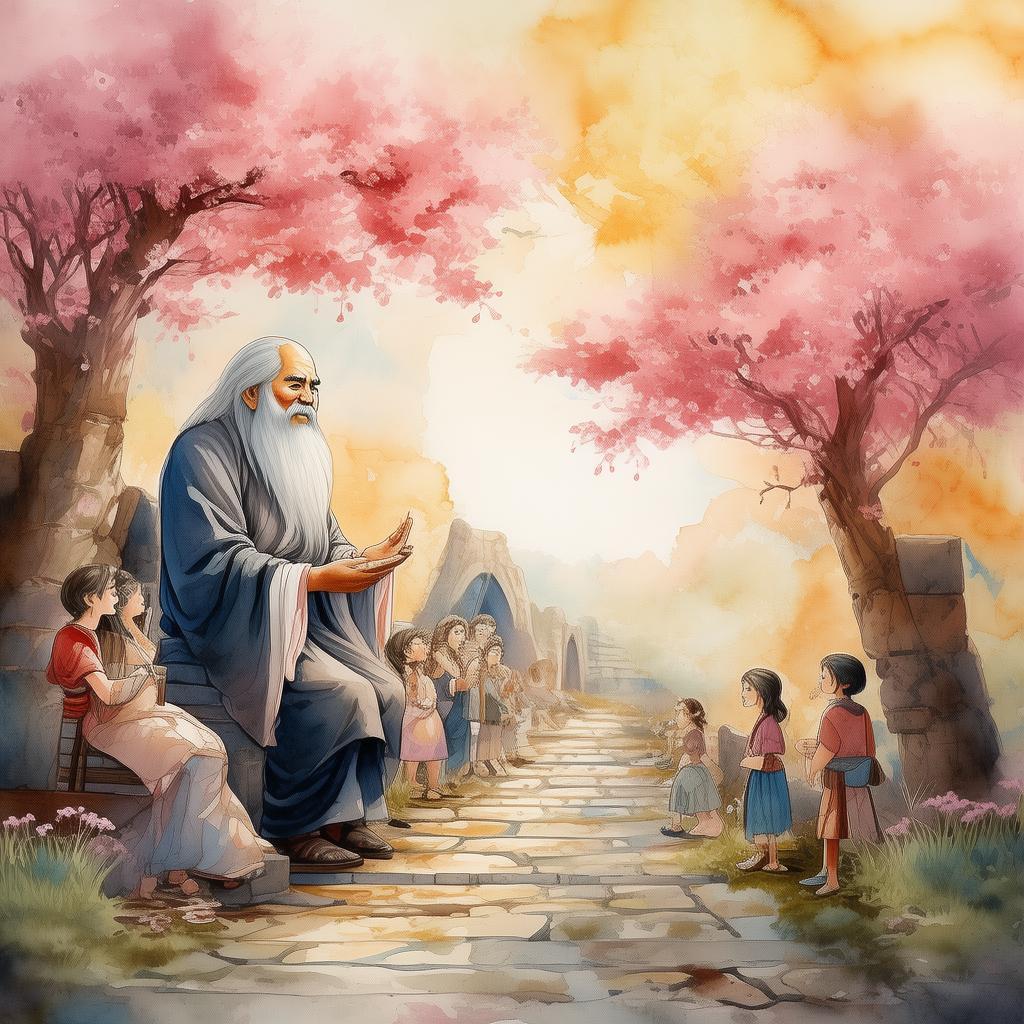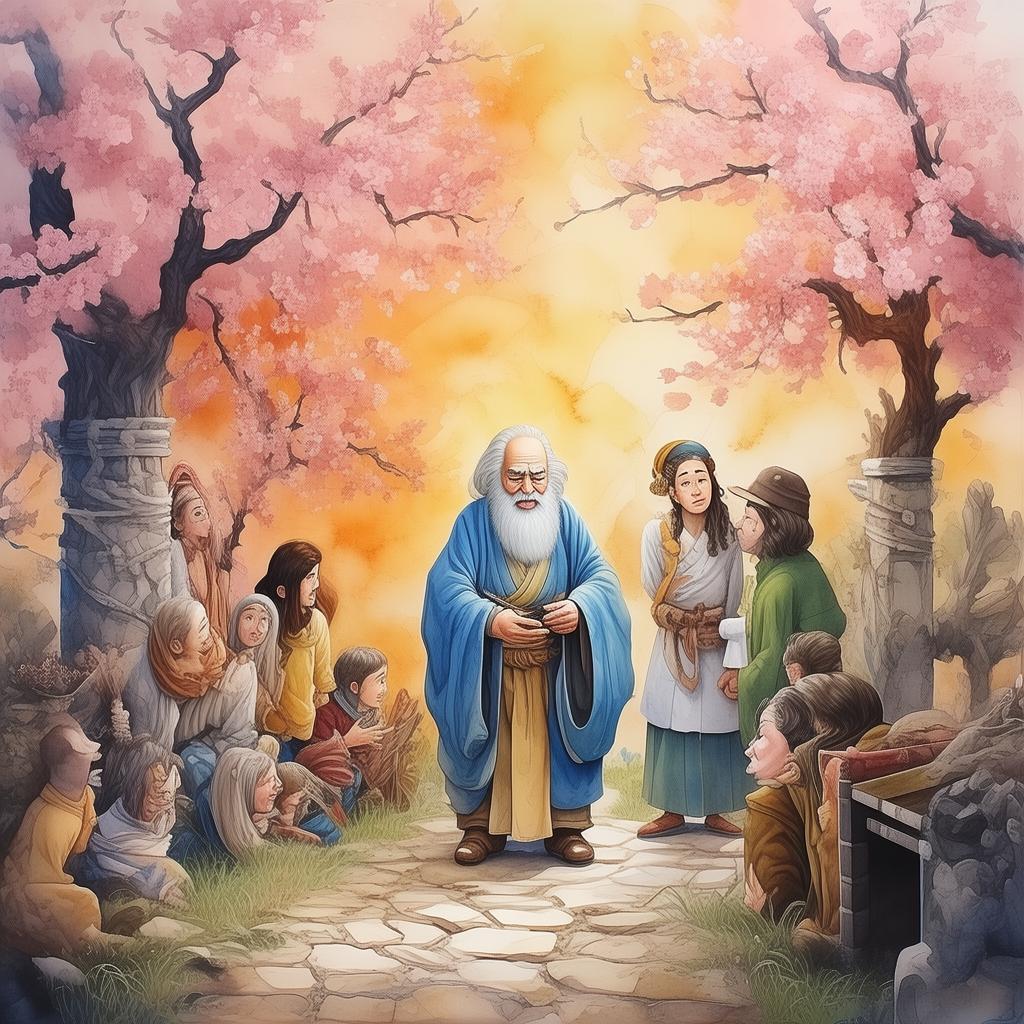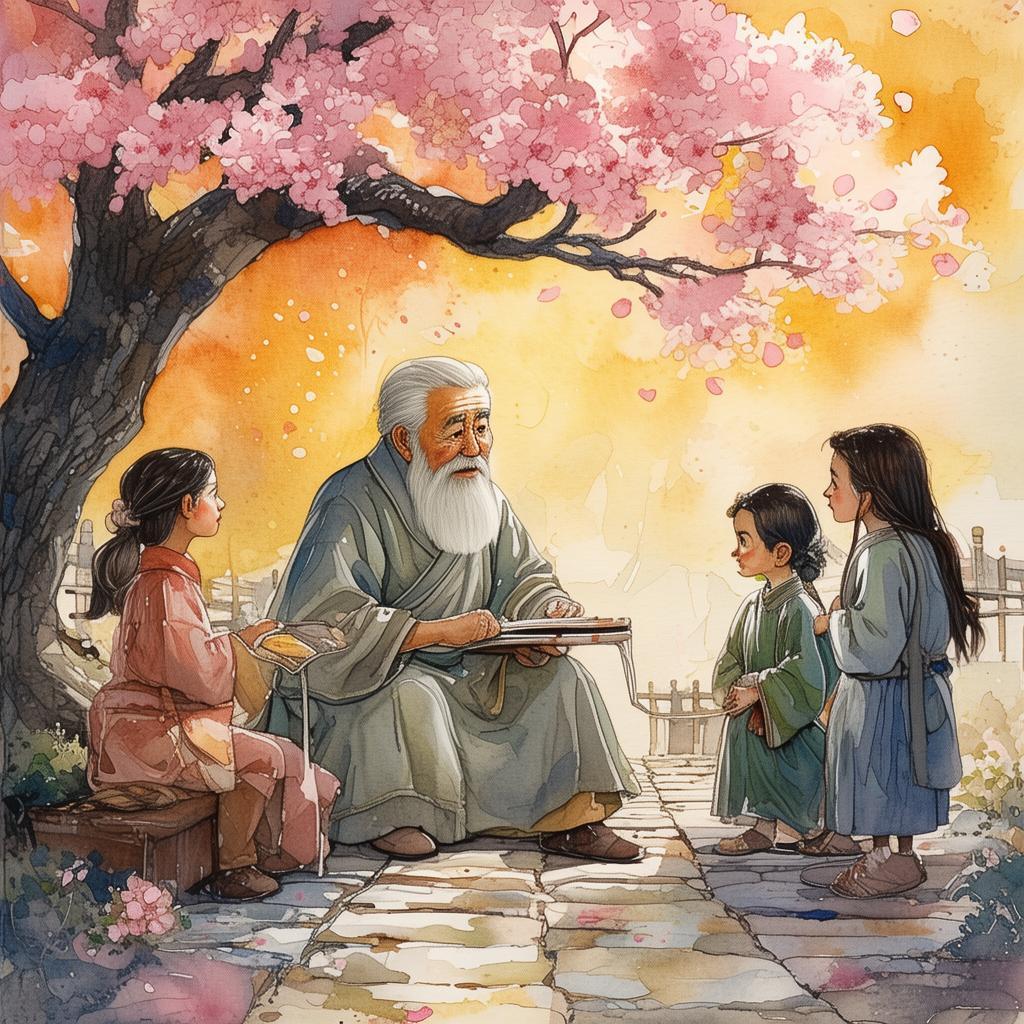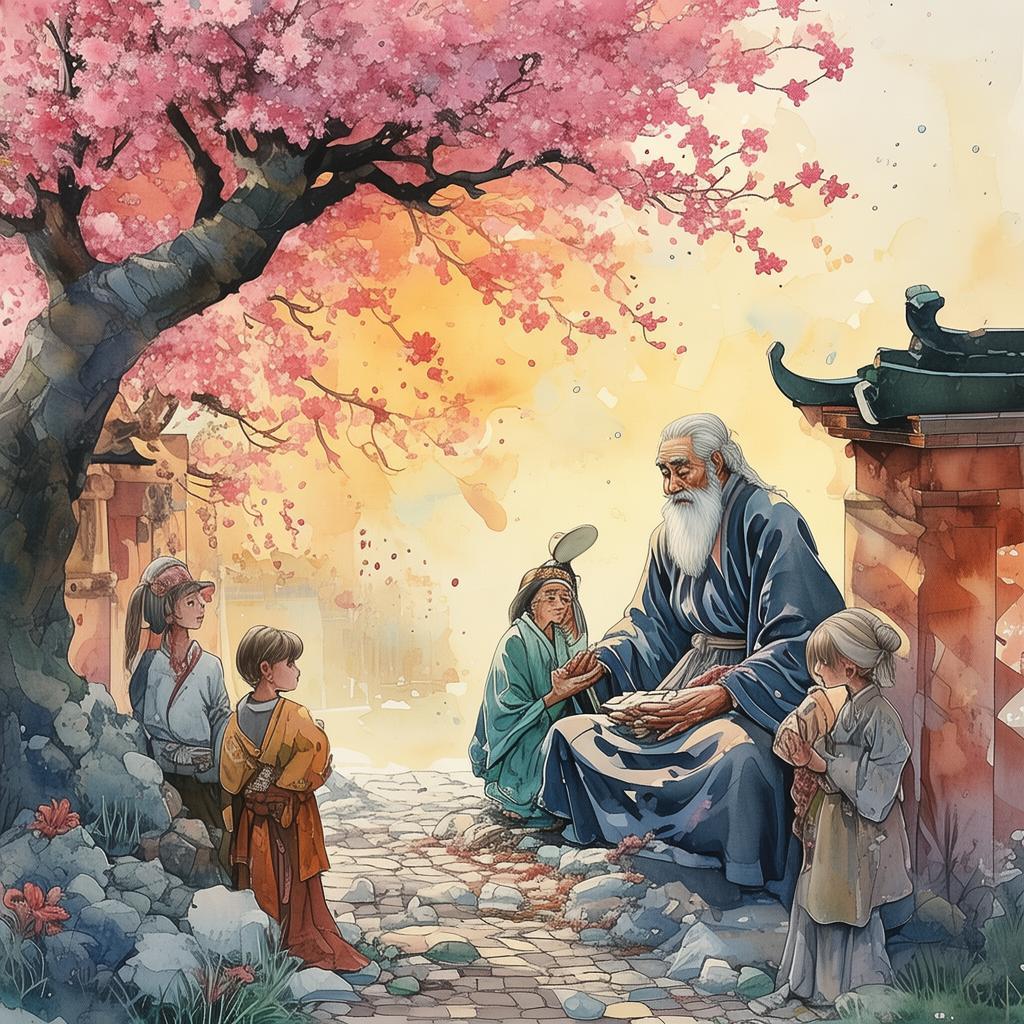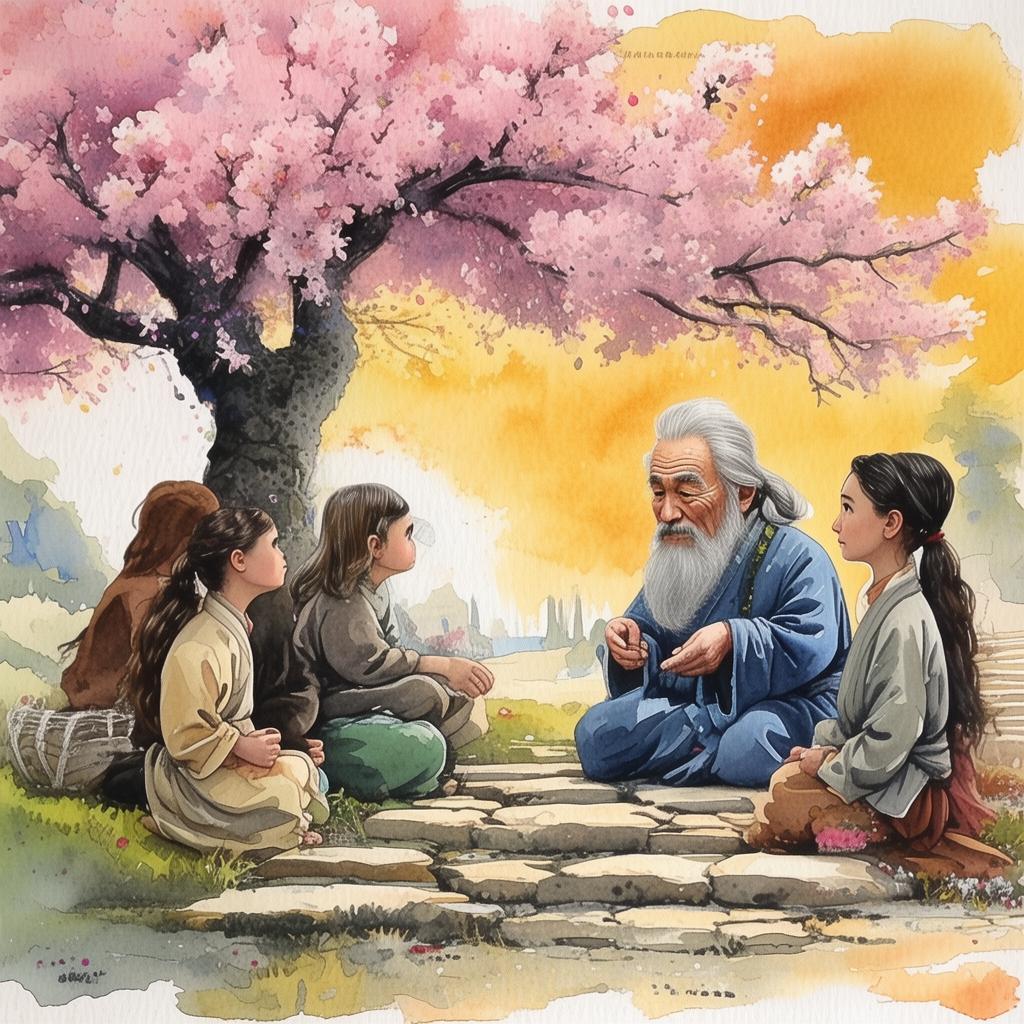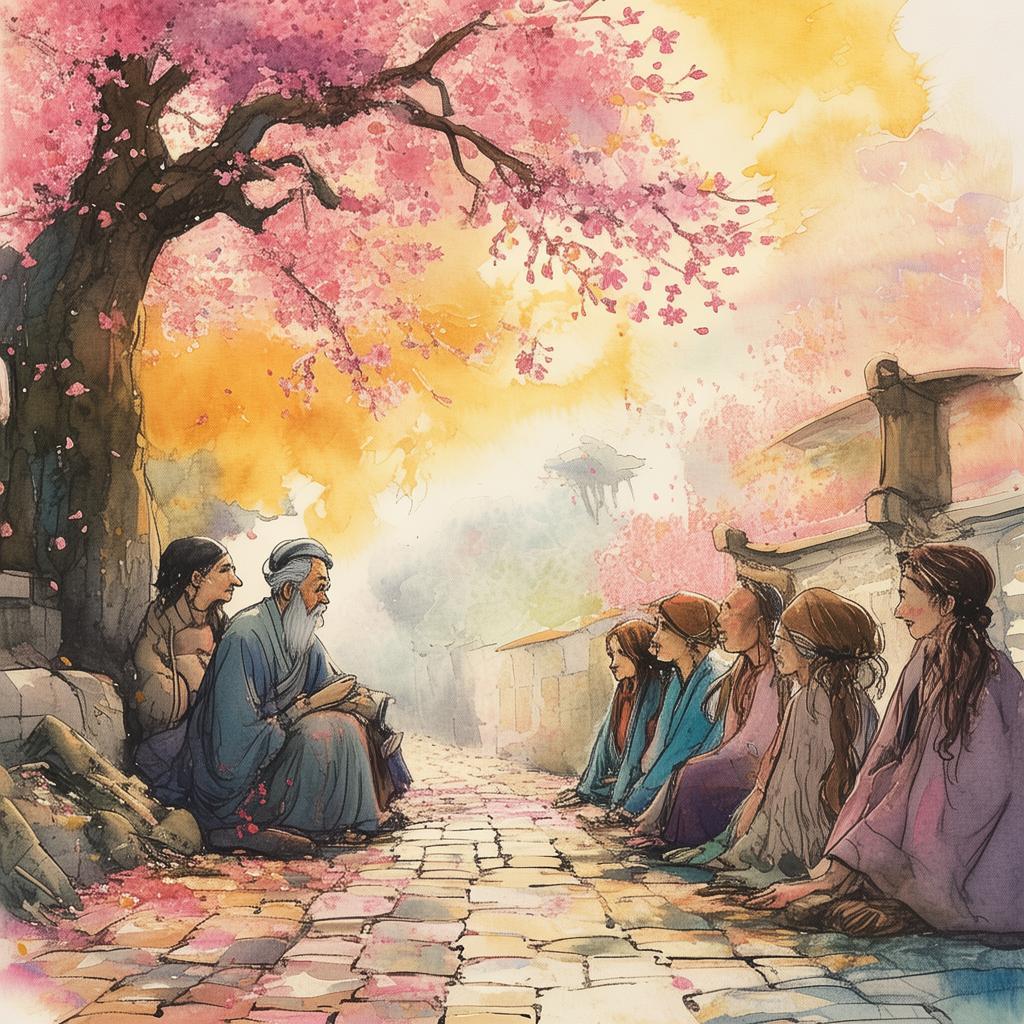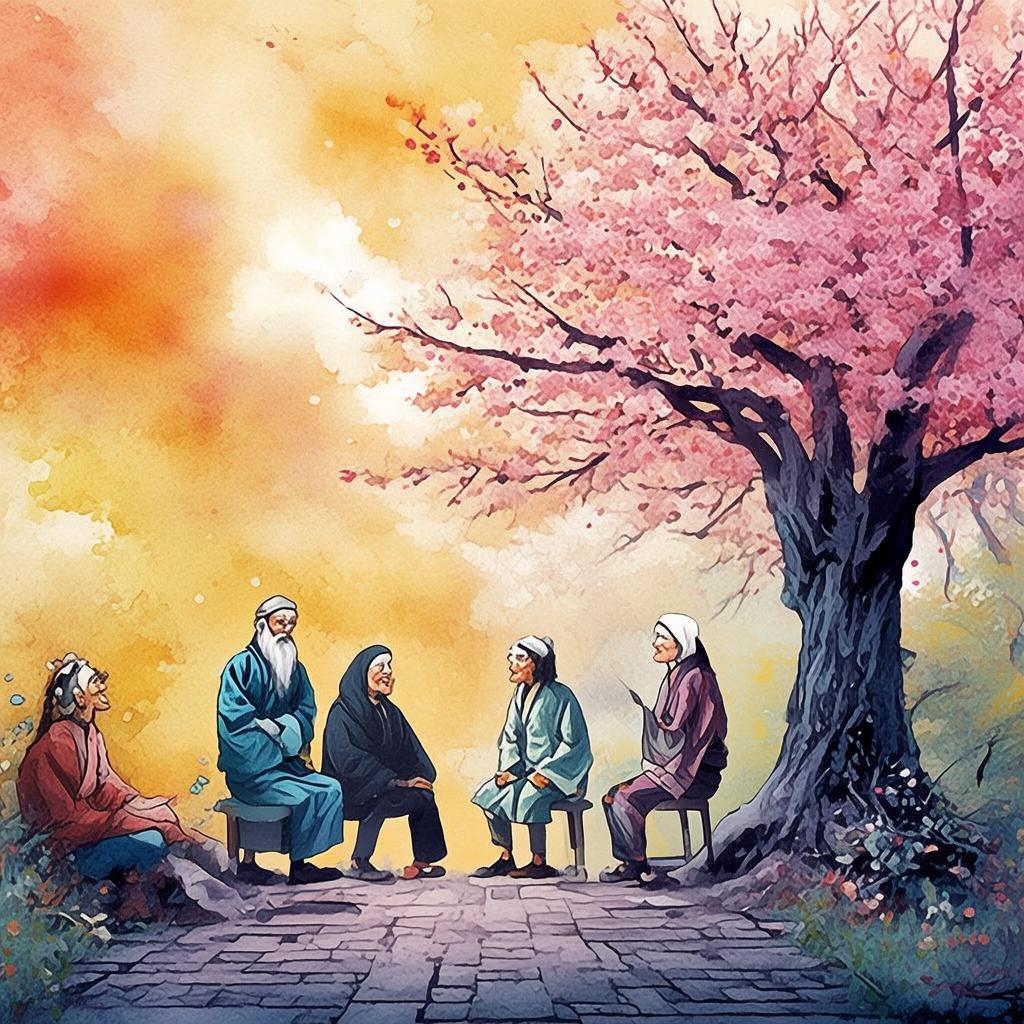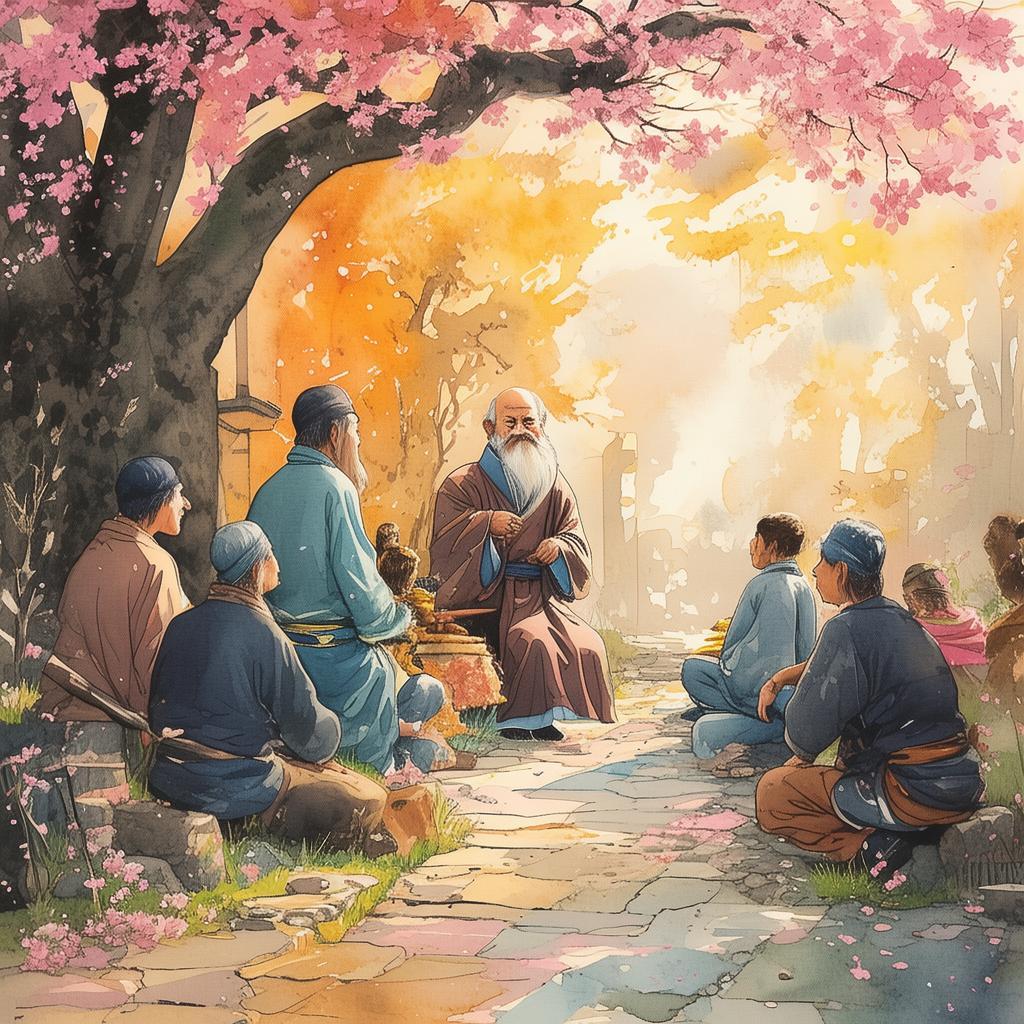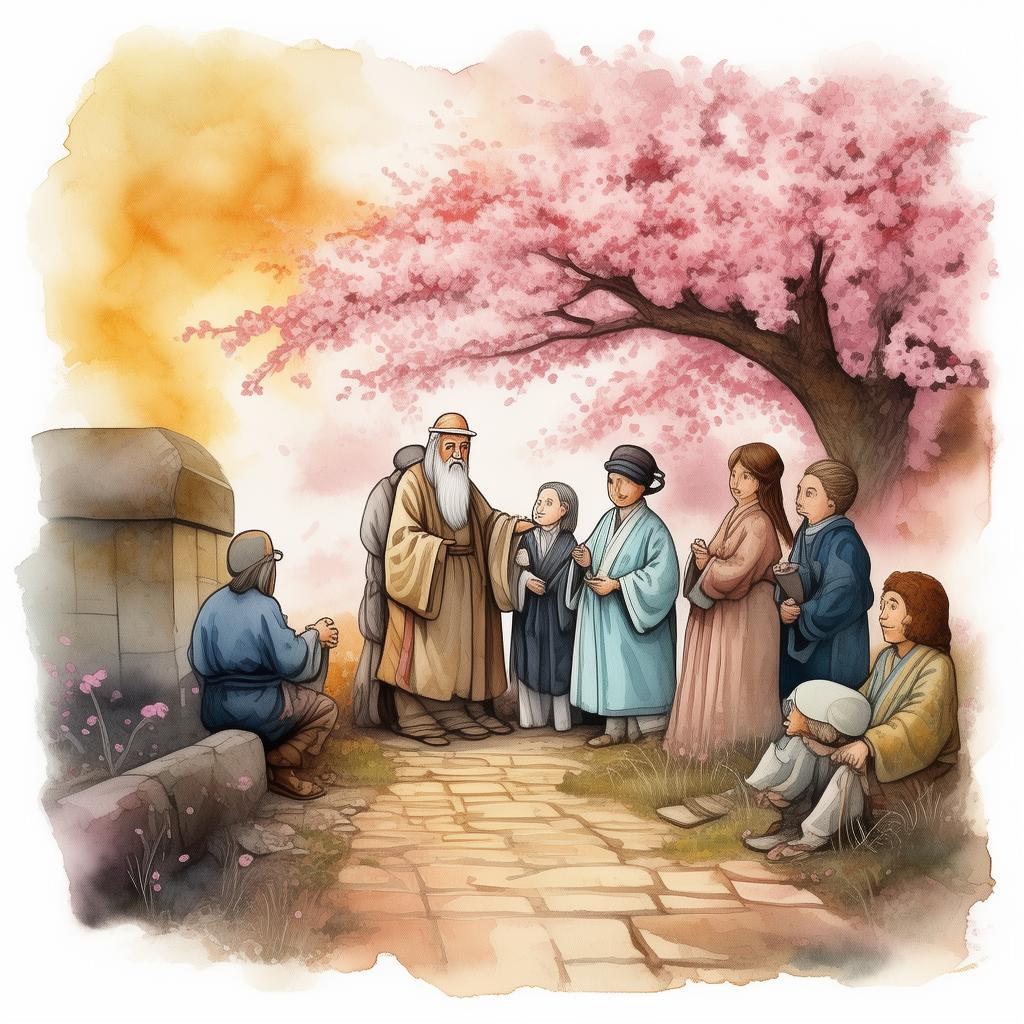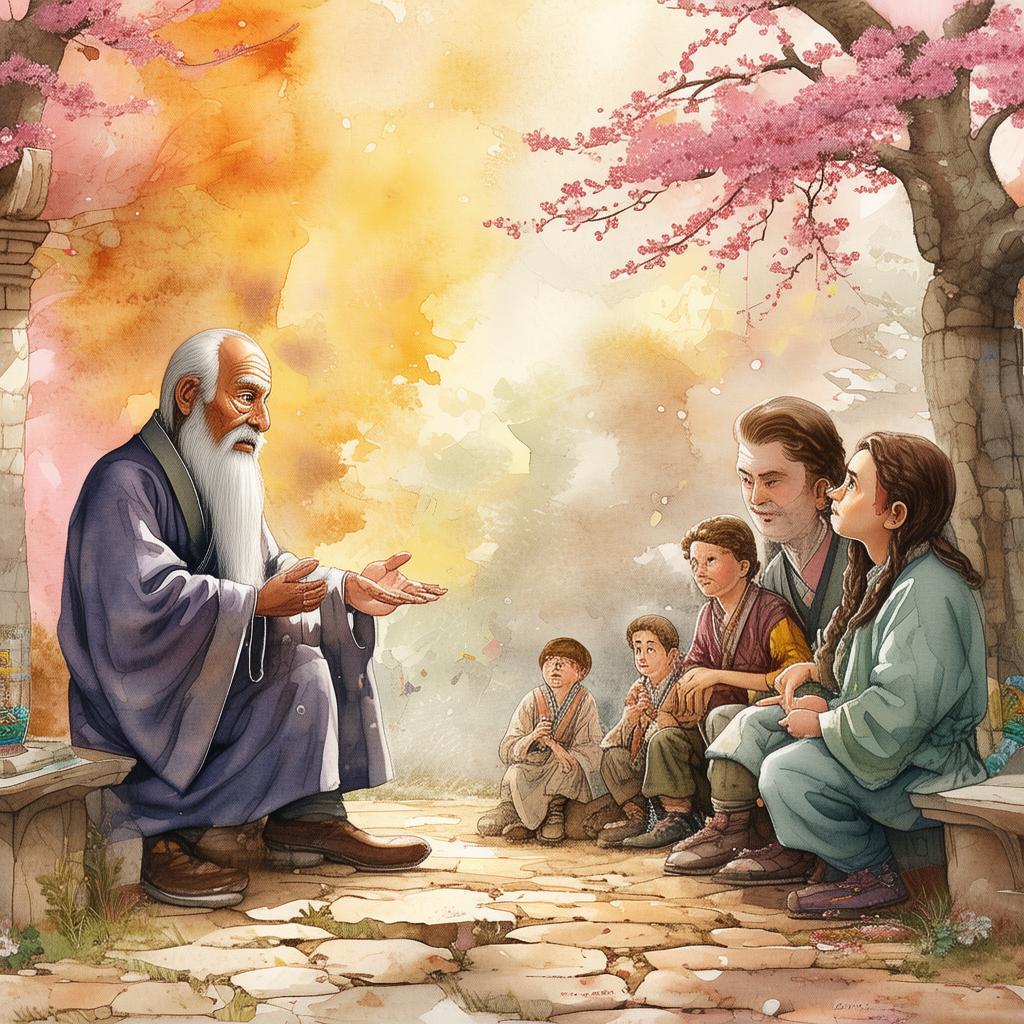The Fading Clarity of Forgiveness
In the ancient land of Jin, where the mountains whispered ancient secrets and the rivers sang tales of valor, there lived a warrior named Feng. His name was synonymous with the legendary Sword of Forgiveness, a blade that was said to be forged from the tears of the gods and imbued with the power to absolve the soul of its darkest sins. Feng was known throughout Jin for his unparalleled skill with the sword, his unparalleled strength, and his unwavering honor.
Yet, beneath the layers of his heroic exterior lay a festering wound of betrayal. Years before, Feng had served as the guardian of the royal family, a duty he had taken with the utmost seriousness. But when a traitor among them sought to undermine the throne, Feng's loyalties were questioned, and he was cast out, his name smeared with dishonor.
In the years that followed, Feng wandered the land, seeking not just to reclaim his honor, but to understand the true nature of forgiveness. He sought out the greatest masters of the martial arts, and one day, he met an old hermit living in the mountains, who spoke of a forgotten path, a way to true redemption.
The hermit's teachings were simple yet profound. "The Sword of Forgiveness," he said, "is not just a weapon of war. It is a symbol of the power to forgive oneself and others. True strength comes not from the blade, but from the courage to look at one's own flaws and the compassion to understand the flaws in others."
Feng was intrigued, but he remained skeptical. How could the sword, which had once been his emblem of honor, now be a tool for forgiveness? The hermit, sensing his hesitation, handed Feng an old, rusted sword. "This is the Sword of Forgiveness. It will not be easy to wield, for it requires a heart pure enough to face the darkness within."
With the hermit's guidance, Feng began his journey of redemption. He traveled to the heart of the land, a place where the sun baked the earth and the air was thick with the scent of the desert. Here, he met a young girl named Mei, whose village had been attacked by bandits. Mei's parents had been killed, and she had been taken as a slave. Her eyes were filled with the pain of loss, and her spirit, though broken, refused to be extinguished.
Feng, moved by Mei's plight, decided to help her. He used the Sword of Forgiveness to defeat the bandits, freeing Mei and her fellow villagers. But as he did so, he realized that the sword's power was not in its ability to strike down enemies, but in its ability to heal wounds.
Mei's eyes sparkled with a newfound hope, and Feng felt a weight lift from his chest. He had found what he had been searching for all these years: the courage to forgive himself and to trust others.
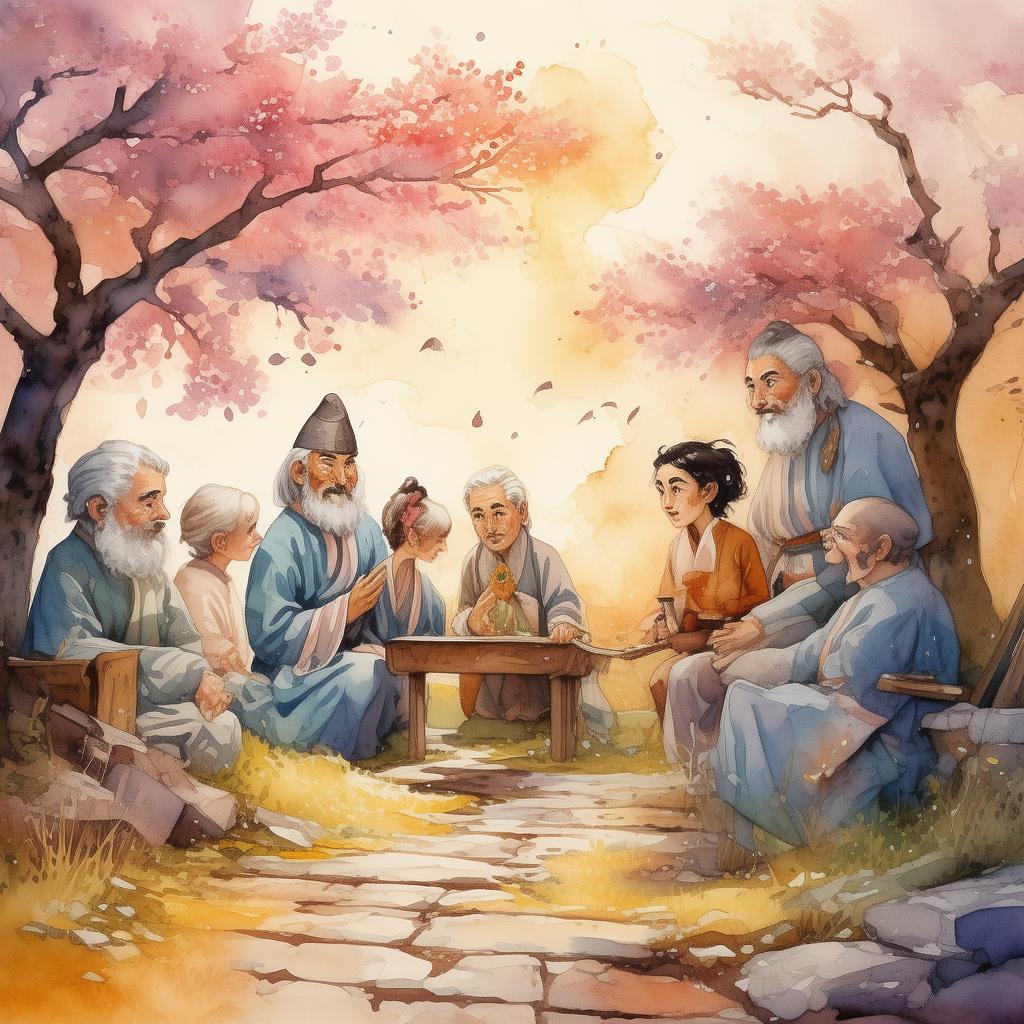
The hermit, who had been watching from afar, approached Feng. "You have learned the true meaning of the Sword of Forgiveness," he said. "It is not a weapon to be wielded, but a mirror to be held up to one's soul."
Feng nodded, understanding at last. He returned to the hermit's mountain retreat, where he spent his days meditating and teaching others the ways of the martial arts and the power of forgiveness. His name was no longer one of dishonor, but one of respect and wisdom.
The Sword of Forgiveness, once a symbol of his past, had become a beacon of his future. Feng had learned that true power lay not in the strength of the sword, but in the strength of the heart. And in that clarity, he had found his redemption.
✨ Original Statement ✨
All articles published on this website (including but not limited to text, images, videos, and other content) are original or authorized for reposting and are protected by relevant laws. Without the explicit written permission of this website, no individual or organization may copy, modify, repost, or use the content for commercial purposes.
If you need to quote or cooperate, please contact this site for authorization. We reserve the right to pursue legal responsibility for any unauthorized use.
Hereby declared.
